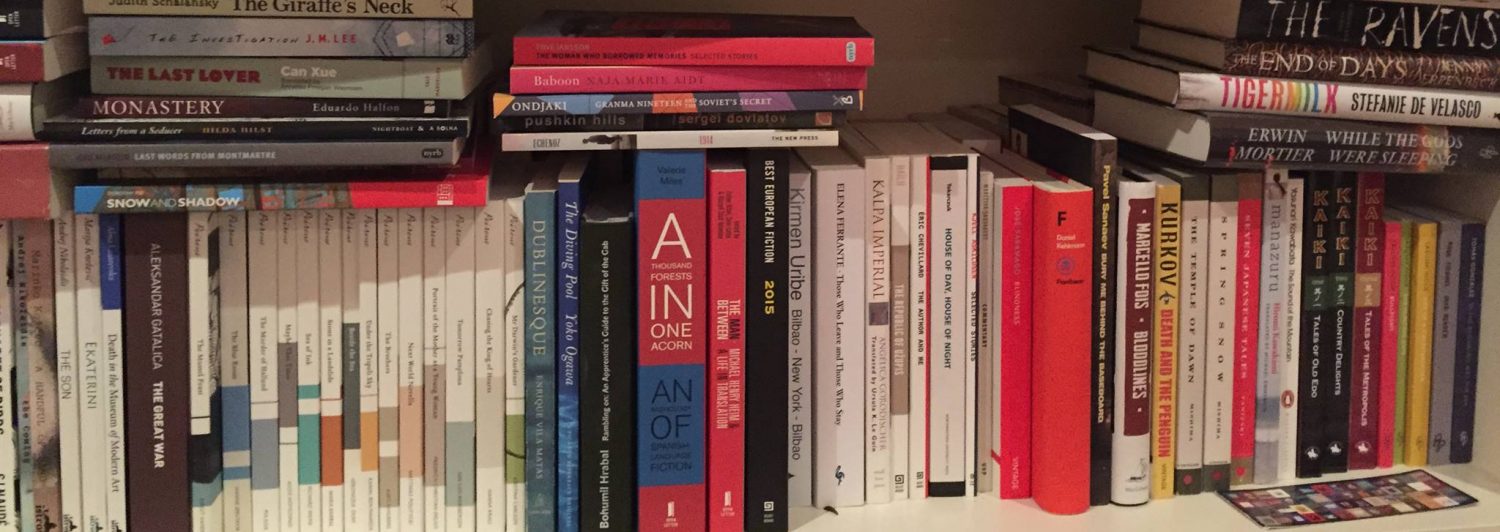
Today another short review of another short book.
Whilst I do keep tabs on numerous literary awards, I must admit I had not heard of the Rubery Book Prize, an annual international award given to writers either self-published or published by independent presses. In 2017 the Fiction Award was won by John Toomey for his novel “Slipping”, published by the independent press Dalkey Archive, and it was through Dalkey’s news updates that I heard of the award and the winning novel.
This is not a spoiler alert, what I’m revealing here is replicated on the back cover, and within the first chapter. This is a book with a simple premise, Albert Jackson, a highly regarded teacher, murders his wife and being sentenced to the local psychiatric hospital he enlists the services of Charlie Vaughan, a young fiction writer, to help him present his side of the story. The novel is not simply presented as Charlie’s journey or struggles in writing Albert’s story, it also consists of Albert’s notes, Charlie’s interviews with witnesses, family members and Charlie’s meetings with Albert’s psychiatrist, Novak.
However it is not the simple narrative premise where this novel’s riches lie, it is a work that plays on the usual motivations and explanations found in the crime genre, and delves into the mind of a man who has become sick of his day to day existence:
People disgust me. To be honest. I long to be alone, away from them and their social pleasantries. Away from etiquette, as if anybody even knows what that means these days. Small talk, as I said, has always been a source of irritation to me but in recent times I’ve come to utterly detest it. To the extent that I almost fear it. Fear I might throttle somebody, or drop into a whimpering ball right there on the street, in abject exasperation at life’s triviality. I have contrived a number of ways to avoid meeting certain people on the street. I plan departures in advance of arrival. I anticipate and prepare for my exits – appointments, work, emergencies, illnesses. You name it I’ve used it. (p17-18)
Masterly constructed the book switches between writer Charlie’s impressions;
…we can never entirely absolve ourselves of first impressions, astute or petty; it is the tiny prejudices and proclivities formed in as long as it takes to say hello that condemn us to tragedy. (p4)
And the musings of an unreliable narrator, Albert – here a lecture about “The Great Gatsby”;
‘And then we get the sting in the tail – the unreliable narrator. Just as we arrive at our safe conclusion, we ask ourselves – Can we trust the story we’ve been told? The narrator is compromised. Does this change the conclusion or bolster it? Who can say? You can, my scholars. Make an argument, take part. Assume your views. Go forth and criticise!’ (p29-30)
And then we have the role of you the reader, as a writer the more Charlie understands, and the more information he uncovers, the more complicit in the crime he becomes, you then begin to question your voyeuristic role as a reader…
In facilitating Jackson and his story, surely I had aligned myself with the wrong camp. As well as which, for me there was still something missing from his assorted statements. And it haunted my impression of him. Told me I was wrong to talk with him. The emotional hollow, the thin precision, the soulless control. What essence of him could be redeemed if the deadpan brutality of his murderous account proved as faithful as Novak had suggested it was? (p104)
There is the added layer of the role of a fiction writer;
But the novel’s a different beast entirely; pliable; capable of shifting and rolling with the fluctuations of the human heart, of clinging to the coattails of otherwise elusive patterns of the mind. It has range, human capacity, like nothing else. (p109)
As I am not generally a reader of crime fiction it is difficult to rate this book as part of that specific genre, however it is an economical and well-constructed book, a lighter read that filled in a gap whilst I was having a break from James Joyce’s “Ulysses”. Whilst an easy read there are a few criticism’s I would like to highlight, the female characters are “victims” (obviously Albert’s wife) and it is not just the dead wife who is not explored in a lot of depth, in the case of the other two female “players” their roles in Albert’s life are explored however their motivations are not detailed in any way and they are merely play things for the male characters, our writer included. As a light distracting read this novel is entertaining, whilst being unsettling and very readable, John Toomey has taken a simple tale and added several devices to hook you in, although some may be overblown (Albert referring to his wife as still being alive, pointing out the use of 3rd person narration are just two glaring examples) the overall effect is an enjoyable escape from some of the more detailed literary fiction I generally approach.

I’m having the exact same trouble. I wanted a light read to counterbalance some grim reading but crime fiction just doesn’t do it for me.
LikeLiked by 1 person
This is such an interesting premise for a book!
LikeLiked by 1 person
I confess I’m intrigued – I’m fond of unreliable narrators anyway, as I just love having my perceptions messed with as I read! 🙂
LikeLiked by 1 person